'Age-Friendly Homes and Connected Communities' - London 2025
Held at The Building Centre in London in March 2025, the conference focused on housing solutions for an ageing population, covering age-friendly design, health integration, and digital innovation.
Thought leaders and experts provided valuable insights into the future of housing and care.
A huge thank you to our sponsors, speakers, and delegates for their active participation and support.
Your commitment and expertise were instrumental in making the event an inspiring and impactful experience, driving forward progress in the housing sector.
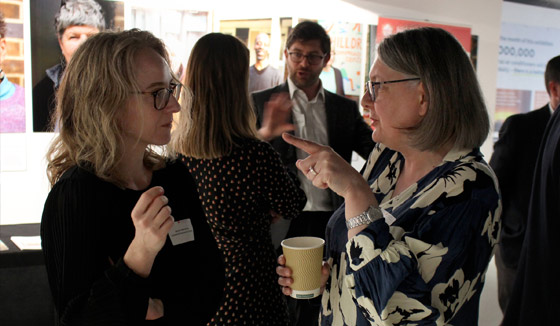
The insights and experiences of our attendees highlight the value of the discussions, networking, and expert-led sessions that took place.
Below are just a few of the comments from those who joined us.
Speaker presentations
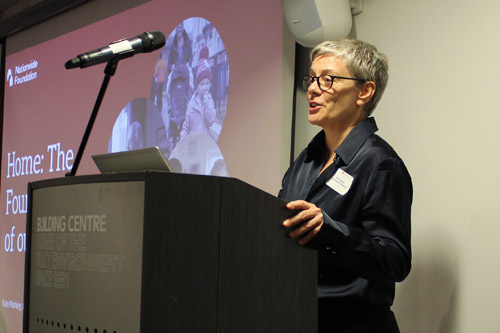
Kate Markey, CEO, Nationwide Foundation
We have a once-in-a-lifetime opportunity to transform this country’s homes crisis. To create decent, affordable and safe homes that can provide the foundation of our lives. Homes For All is a coalition of housing experts, the Church of England and Nationwide Foundation. It calls for a vision for housing alongside the awaited long-term strategy and importantly cross-party consensus and independent governing committee.
Our housing is too important to fall to the whim of political change and short-term policy decisions. In many other sectors – like NHS, education – we can clearly understand the vision and purpose. Together we can do the same for our homes. Read more and join the campaign here: Homes For All.
Links:
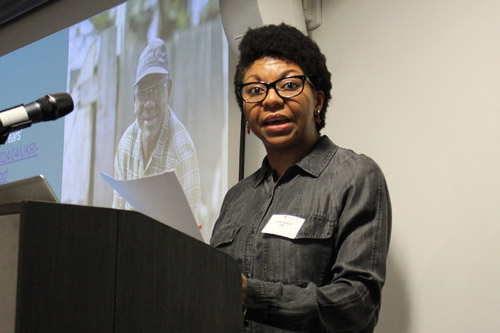
Cynthia Bullock, Deputy Director - Healthy Lives, Innovate UK
There is social and economic value in tackling the major challenges and opportunities an ageing population presents. This should drive investment and policies to catalyse an innovation pipeline, from research and spin out through to scale up.
An ecosystem approach is necessary to foster collaboration between and across key organisations and sectors within a given area to enable the development and delivery of appropriate services and infrastructure to support people to make the most of their later lives.
The views of people with lived experience should be embedded to help shape these services such that they can be truly inclusive, diverse and supportive of the levelling up on health inequalities.
Links:
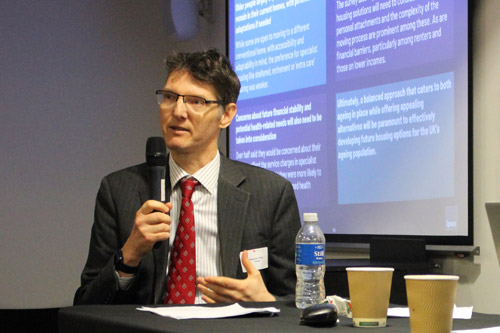
Stephen Finlay, Research Director, Ipsos
Summarising key findings from a large-scale quantitative survey of older people across the UK, the presentation highlights a strong preference for older people to stay in their current home, with adaptations if necessary.
The stated propensity to move home in the short-term is low but increases in the longer term. Moving to a smaller home is seen as a common motivator, although personal attachments and moving costs are seen as barriers.
While stated preferences for specialist housing are relatively low, rising heath-related moves may see future demand increase.
Overall, findings suggest future housing solutions need to balance preferences for ageing in place alongside appealing forms of alternative and specialist provision.
Links:
- Slides: Vital Statistics: Understanding the Housing Preferences of Older People
- Older People’s Housing Preferences report
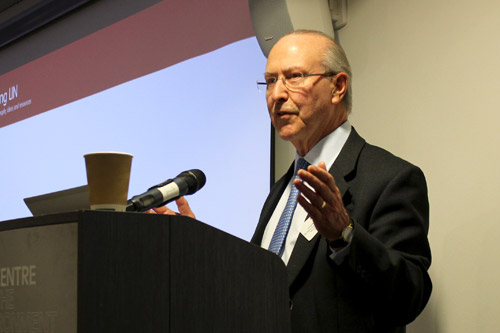
Lord Best, Co-Chair of the All-Party Parliamentary Group on Housing and Care for Older People (APPG-HCOP)
Lord Best discussed the APPG-HCOP inquiry into creating intergenerational communities, with Housing LIN acting as Secretariat.
He highlighted the importance of building on previous HAPPI reports on housing for an ageing population, now focusing on fostering mixed-age communities in both mainstream and specialist housing.
The inquiry will incorporate evidence from research, policies, practices, professional insights, and personal experiences, with a strong emphasis on intergenerational communities.
Links:
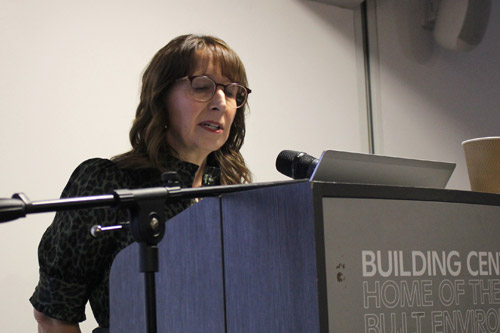
Clare Cameron, Director, PRP
Connecting Communities for Lifelong Homes and Lifetime Neighbourhoods
My presentation highlighted the need for older adults to stay at the heart of their communities, with easy access to transport, green spaces, health care, recreation, and education. Local and national policies must prioritise specialist older people's housing in major new developments to help achieve this.
I showcased how smart design can foster connections for older residents, building resilient communities, and I shared ideas for integrating intergenerational activities to link residents with the wider community.
Exemplary case studies for Lifetime Neighbourhoods included Michaelston Wellbeing Village for Cardiff Living and a video of New Lodge Community in York for Joseph Rowntree Housing Trust.
Links:
- Slides: HAPPI Places: Connecting Communities for Lifelong Homes and Lifetime Neighbourhoods
- PRP Leads the Way in our Newest Inspirational Achievement with Innovative New Lodge Community
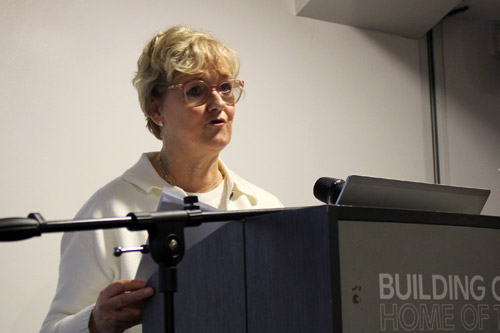
Tracey Kerly, CEO, Ashford Borough Council
Building more Affordable homes is essential.
Quality Homes suitable for older people has a positive impact for all Housing Providers, allowing older people to ‘right size’ into safe homes, reducing social care cost and cost to the NHS, and providing ultimately through the churn of stock, (the ‘chain lettings’) to free up family homes and ultimately creating vacancies to permanently house those from Temporary accommodation.
In my view this is a win win for us all so please think positively about re-development of existing older sheltered schemes, building new schemes, using Town-Centre assets, a policy approach in local plans for such provision to plan for our aging population to live comfortably as we all live longer with long-term conditions.
Links:

Future Leaders Programme Cohort
Members of this year's cohort from the Housing LIN's Future Leaders Programme shared insights from their leadership development, discussing lessons learned in tackling the housing and community challenges of an ageing population.
Links:
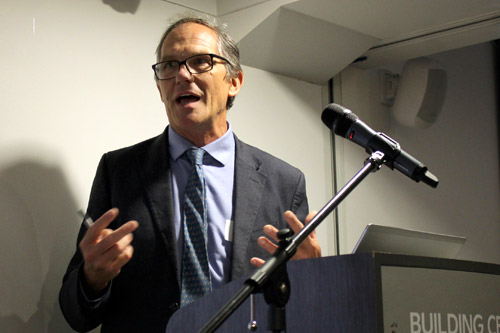
Bruce Moore, Chief Executive, Housing 21
Aligning Leadership Principles with Housing 21’s Devolved Model
The essence of leadership is to use your personal power, to win hearts and minds, to achieve a common purpose. We are all different and unique (as are all older people) so there is no right way to be a leader nor is there a single right service or solution that is suitable for all older people.
Some suggested leadership tips (to consider) from two older chief executives from the housing (with care) and care home sector are available at: Top ten tips for the next generation of CEOs of health, housing and care organisations - Care Talk.
Housing 21’s approach to delivering services in over 500 Retirement Living and Extra Care schemes and courts across England is provide every resident with the basic requirement of a safe, desirable, affordable and well managed property, but then to devolve as much power and autonomy to the individual resident as possible to enable them to live the life they want. But when decisions also have an impact on other residents then the aim should be to agree the best and fairest approach through a process of collective local choice and consensus.
This effectively inverts the pyramid of traditional organisational hierarchies (and avoids the practice of consulting residents on how decisions, that they are better able to take for themselves, will be exercised by their landlord on their behalf). This is akin to the principle of servant leadership and recognises that the most important people are the older people who live in our properties.
Links:
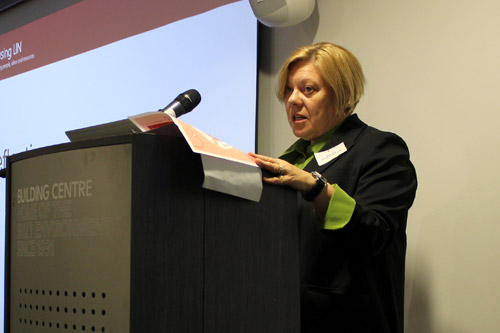
Susan Kay, Chief Executive of the Dunhill Medical Trust
Sue discussed the challenges of creating homes and communities for an ageing population.
She emphasised the need for spaces that promote independence, well-being, and intergenerational connections.
Sue also formally launched their Flagship Programme for their next strategic plan period, in collaboration with the Housing LIN, which will focus on creating resources and providing funding for testbed locations to do just that.
By fostering partnerships between local authorities, developers, Integrated Care Boards, community groups and others (with the voice of older people placed front and centre), we can build on more than a decade of learning and recommendations from HAPPI, TAPPI, the Commission, the Taskforce and others to create more opportunities for housing that truly meets the needs of us all.
Links:
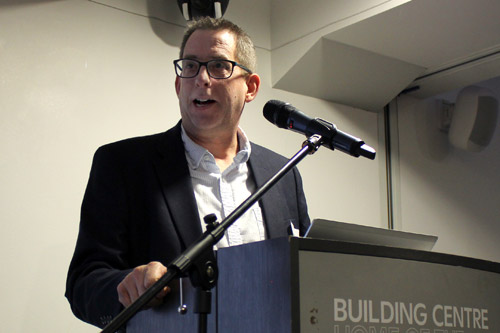
Angus Honeysett (pictured), Head of Global Market Insight, and Tony Walker, UK Sales Director Tunstall Healthcare Ltd
Digitally Connected: A White Paper for Improving Citizen Outcomes and Shaping Local Markets was presented by Angus Honeysett from Tunstall Healthcare where he explored the integration of housing, health, and social care through digital innovation.
The paper emphasises the need for proactive, technology-driven solutions to address challenges posed by an aging population with evolving healthcare demands.
Key takeaways include the role of telecare in preventative care, the shift from analogue to digital systems, and the importance of collaboration among stakeholders.
By using technology, policymakers can enhance citizen well-being, reduce healthcare costs, and create sustainable, future-proof systems that empower individuals to live independently at home.
Links:
- Slides: Digitally Connected: A White Paper on Innovative Solutions in Technology-Enabled Care at Home
- Report: Advancing Technology Enabled Care - Who Cares and Who Pays?
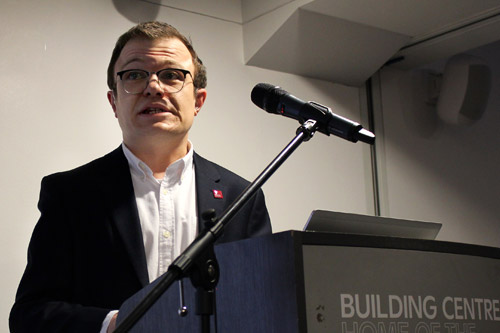
Ben Cooper, Research Manager, Fabian Society
Our home is supposed to be a place of safety and security. But for nearly 1.5 million households who rent in England, this is not the case. Around 225,000 households with someone aged 65 and over live in substandard rented accommodation – equivalent to 15 per cent of those older households who live in the rented sectors.
Home Comforts, a report for the Fabian Society, sets out how the government can address poor-quality housing in the social and private rented sector in England and the benefits of doing so for individuals, communities and our public services.
The report sets out a series of solutions to improve rented stock, so that everyone has a safe, secure, warm and accessible home. Recommendations include: a new ‘Good Home Standard’, reform of the Disabled Facilities Grant, funding to improve social and private rented properties, and requiring councils to provide a local ‘good home agency’ amongst others.
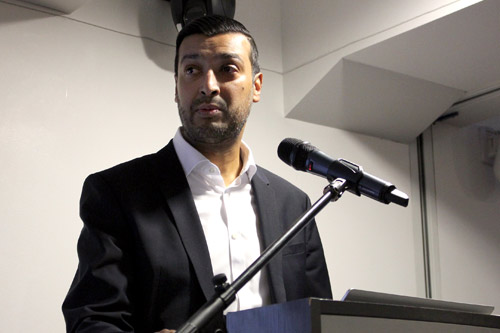
Shahi Islam, Director of Affordable Homes, Homes England
- Homes England are open for discussions around funding opportunities
- The Agency supports the provision of diverse housing options including housing for older people and specialist and supported
- The third top up confirms Govt commitment to the AHP and the Agency to boost the delivery of social and affordable housing – the Agency will continue to play a key role
- Priority for social rent and delivery within the current parliament period
- The power of partnerships is important – to support the delivery of more housing, ensure local needs are considered and contribute to successful places and communities
- At the heart of our work should be the people we house, respect and dignity and ensuring we create homes that are safe, decent and of quality





